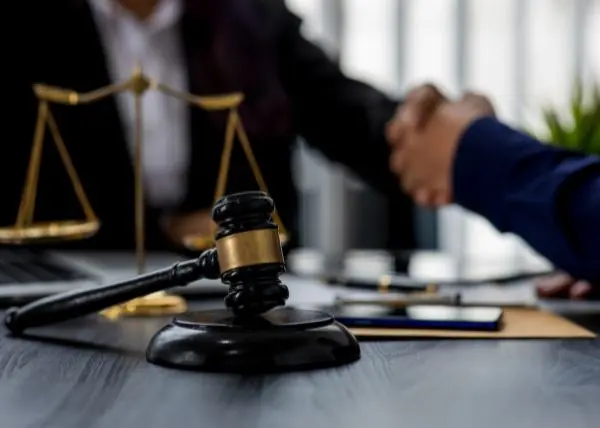Top 10 Questions to Ask Your Divorce Lawyer in NYC
Introduction
Divorce is a challenging and emotional process that can significantly impact your life. Choosing the right divorce attorney is crucial to navigating this difficult period effectively. In New York City, where divorce laws and proceedings can be particularly complex, it’s essential to find a lawyer who can advocate for your best interests. This blog post will guide you through the top 10 questions to ask your divorce lawyer to ensure you select the best legal representation for your needs.
What is Your Best Advice in Selecting a Divorce Attorney?
Selecting the right divorce attorney can set the tone for your entire divorce process. Here are a few key pieces of advice:
- Research Thoroughly: Look for lawyers who specialize in family law and have extensive experience with divorce cases in NYC.
- Seek Recommendations: Ask friends, family, or colleagues who have gone through a divorce for referrals.
- Check Reviews: Online reviews and testimonials can provide insight into a lawyer’s reputation and effectiveness.
- Initial Consultation: Take advantage of initial consultations to gauge the lawyer’s approach, communication style, and expertise.
1. Experience and Expertise
What is Your Experience with Divorce Cases in NYC? Experience matters significantly in divorce cases. Inquire about the lawyer’s background and the number of divorce cases they have handled, particularly in New York City. This question helps you understand their familiarity with local courts, judges, and NYC-specific divorce laws. An experienced lawyer is likely to have encountered a wide range of scenarios and can provide insights into potential challenges and solutions.
How Long Have You Been Practicing Family Law? The length of time a lawyer has been practicing family law is an indicator of their expertise. Family law encompasses more than just divorce; it includes child custody, alimony, and property division. A lawyer with extensive experience in family law will be well-equipped to handle the complexities of your case.
2. Approach to Divorce Cases
What is Your Approach to Handling Divorce Cases? Each lawyer has a unique approach to handling divorce cases. Some may prefer aggressive litigation, while others may focus on negotiation and mediation. It’s essential to find a lawyer whose approach aligns with your expectations and comfort level. For instance, if you prefer a more amicable resolution, a lawyer who emphasizes mediation might be a better fit.
What Do You Want Your Divorce Lawyer to Be Like? This question allows you to express your preferences and expectations directly. Do you want a lawyer who is aggressive and assertive, or do you prefer someone who is empathetic and understanding? Knowing what you want in a lawyer can help you find someone who matches your style and needs.
3. Communication and Accessibility
How Will We Communicate Throughout the Case? Effective communication is vital during a divorce. Ask about the lawyer’s preferred methods of communication, whether it’s phone calls, emails, or in-person meetings. Understanding how and when you can reach your lawyer ensures you will receive timely updates and have your questions answered promptly.
What is Your Policy on Returning Phone Calls and Emails? A lawyer’s responsiveness can significantly impact your experience during the divorce process. Clarify their policy on returning phone calls and emails. Ideally, you want a lawyer who commits to responding within a reasonable timeframe, so you’re not left waiting for critical information.
4. Fees and Billing
What Are Your Fees and How Do You Bill Clients? Transparency about fees is crucial to avoid any surprises. Ask for a detailed breakdown of their billing structure, including retainer fees, hourly rates, and any other costs you might incur. Understanding the financial aspect of hiring a divorce lawyer helps you plan your budget and manage your finances during the divorce.
What is the Average Retainer Fee for a Divorce Lawyer in NYC? In New York City, retainer fees for divorce lawyers can vary widely based on their experience and reputation. Asking about the average retainer fee gives you a benchmark to compare different lawyers and make an informed decision.
5. Case Management and Staff Involvement
Who Else Will Be Working on My Case? In larger law firms, it’s common for multiple staff members, such as paralegals or junior attorneys, to work on a case. Understanding who will be involved and their roles can help you set expectations and ensure you’re comfortable with everyone handling your case.
How Do You Manage the Workload of Divorce Cases? Managing multiple cases simultaneously is a reality for many divorce lawyers. Ask about their process for handling workload to ensure your case will receive the attention it deserves. A well-organized lawyer will have systems in place to keep track of deadlines and case details.
6. Settlement vs. Trial
What Percentage of Your Cases Go to Trial vs. Settle Out of Court? Knowing the lawyer’s track record with settlements and trials can give you an idea of their negotiation skills and courtroom experience. A higher settlement rate might indicate strong negotiation abilities, while trial experience can be crucial if your case goes to court.
What Should I Ask for in the Divorce? Your lawyer should provide guidance on what to ask for in terms of assets, custody arrangements, and support. This advice will be based on your specific circumstances and the lawyer’s understanding of what is reasonable and achievable in NYC divorce cases.
7. Understanding of NYC Divorce Laws
How Well-Versed Are You in NYC Divorce Laws and Regulations? New York City has specific laws and regulations that can affect your divorce. Ensure your lawyer is well-versed in these laws and stays updated on any changes. Their knowledge of local laws can significantly impact the outcome of your case.
8. Client Involvement and Decision Making
How Involved Will I Be in the Decision-Making Process? Clarify your role in the case and how much input you will have in major decisions. Some clients prefer to be heavily involved, while others may want the lawyer to take the lead. Understanding your level of involvement helps set expectations and ensures you feel comfortable with the process.
What is Your Advice for Clients During the Divorce Process? A good lawyer will provide valuable advice on how to handle the emotional and practical aspects of divorce. This can include tips on managing stress, communicating with your ex-spouse, and preparing for court appearances.
9. Timeline and Expectations
What is the Expected Timeline for My Case? Divorce cases can vary widely in duration. Ask about the likely timeline for your case and the factors that could affect this timeline. Understanding the process and setting realistic expectations can help you prepare for each stage of your divorce.
What Should I Expect at Each Stage of the Process? Knowing what to expect at each stage of the divorce process can help you feel more in control and less anxious. Your lawyer should provide a clear overview of the process, from filing the initial paperwork to finalizing the divorce.
10. Client References and Success Stories
Can You Provide References from Past Clients? Speaking with former clients can provide insights into the lawyer’s strengths and weaknesses. Ask for references and follow up with them to get a better understanding of the lawyer’s performance and client satisfaction.
What Are Some Examples of Your Successes in Similar Cases? Specific examples of successful outcomes in cases similar to yours can give you confidence in the lawyer’s abilities. Ask about past cases that had similar complexities and how the lawyer achieved favorable results.
Conclusion
Choosing the right divorce lawyer in NYC requires careful consideration and thorough research. By asking these top 10 questions during your initial consultation, you can gain valuable insights into the lawyer’s experience, approach, and compatibility with your needs. Remember, a good lawyer will not only provide expert legal advice but also support you emotionally through this challenging time. Take the time to find a lawyer who meets your criteria and makes you feel confident and comfortable as you navigate your divorce proceedings.
Additional Tips
- Prepare for Your Consultation: Bring relevant documents and a list of questions to your initial consultation to make the most of your time.
- Trust Your Instincts: If you feel uneasy or unsure about a lawyer, it’s okay to continue your search. Trust and comfort are crucial in this relationship.
- Consider Specialization: If your case involves specific issues like high net worth or complex custody arrangements, look for a lawyer who specializes in those areas.
- Stay Informed: Educate yourself about the divorce process and your rights. An informed client can make better decisions and work more effectively with their lawyer.
By following these guidelines and asking the right questions, you can find a divorce lawyer who will advocate for your best interests and help you achieve a fair and favorable outcome in your divorce.


